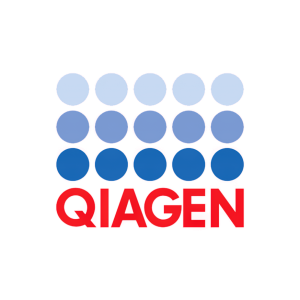QIAGEN strengthens its portfolio for cancer research, showcasing latest product launches at AACR Annual Meeting 2024
Novel QIAcuity dPCR PanCancer Kits can detect rare mutations of EGFR and BRAF genes at the same time, while saving sample material, reducing time and cost // New QIAseq Targeted RNA-seq Panel for T-cell Receptor allows targeted next-generation sequencing of T-cell receptors, increasing accuracy and sensitivity PAXgene® Urine Liquid Biopsy Set to enable non-invasive sample collection and cell-free DNA stabilization, thereby allowing researchers to make advances in urine liquid biopsy
Venlo, the Netherlands, April 03, 2024 (GLOBE NEWSWIRE) -- QIAGEN N.V. (NYSE: QGEN; Frankfurt Prime Standard: QIA) today announced a series of new products to further enhance cancer research as well as to enable urine collection and stabilization as a new approach for liquid biopsy.
These three new products, along with the IVD version of QIAGEN’s digital PCR platform QIAcuity set for launch in mid-2024, are to be featured at the annual meeting of the American Association for Cancer Research (AACR) in San Diego, California, from April 5-10. Two Exhibitor Spotlight Theater sessions and several poster presentations will highlight additional advances from QIAGEN in this field.
“We are excited to share our latest innovation in digital PCR, NGS, and non-invasive sample collection and DNA stabilization with the research community that will help them gain valuable insights into cancer. Our new QIAcuity PanCancer kits will enhance the understanding of EGFR- and BRAF-driven cancers while our QIAcuity IVD system, ready for launch this summer, will translate cancer research into clinical applications and precision diagnostics,” said Nitin Sood, Senior Vice President and Head of QIAGEN’s Life Sciences Business Area. “And with our new solutions for urine liquid biopsy and targeted RNA-sequencing, researchers receive new efficient tools that potentially enable them to better detect minimal residual disease, monitor treatment response, and identify new therapeutic targets.
The new products involve the following:
- The newly launched QIAcuity dPCR PanCancer Kits will allow researchers using QIAGEN’s QIAcuity dPCR system to detect multiple EGFR and BRAF hallmark mutations at the same time and with high sensitivity. EGFR and BRAF are genes essential for normal cell growth and function, but mutations in these genes can result in cancer development. The assays clearly discriminate between wild-type and mutant sequences, enhancing specificity and reducing false positives. Researchers can use the kits for pre-screening samples before, for example, analyzing them with NGS, or monitoring cancer cells. Simultaneously assessing the mutations, they reduce time and cost and save on sample material. The technology has the potential to be adapted to identify other genes associated with cancer risks.
“I am testing the novel PanCancer Assays on the QIAcuity instrument using FFPE tissue samples and liquid biopsies to concurrently detect multiple hallmark mutations in BRAF and EGFR – and initial findings have convinced me that this product has the potential to accelerate prognostic and predictive biomarker analysis, early mutation detection and screenings,” said Vijayalakshmi Ramshankar, Professor and Head of the Department of Preventive Oncology Research, Cancer Institute (WIA), Chennai, India.
- To advance research on how the immune system interacts with cancer, QIAGEN has introduced the QIAseq Targeted RNA-seq Panel for T-cell receptors. T-cell receptors play a crucial role in the adaptive immune system, which is responsible for recognizing and eliminating abnormal cells, such as cancer cells. The panel uses unique molecular indices (UMI) with QIAseq Enrichment Technology to facilitate ultrasensitive and accurate characterization of the immune repertoire in human and mouse from low input and FFPE samples. It enables targeted NGS detection of the human or mouse expressed T cell receptors (TCR): TCR-alpha, TCR-beta, TCR-gamma and TCR-delta. This library prep kit will accelerate research into several areas with high accuracy and sensitivity, among them how the T-cell receptor repertoire in cancer can be used as a biomarker and how the repertoire of tumor-infiltrating T-cells can improve the understanding of tumor behavior.
- The PAXgene Urine Liquid Biopsy Set currently being developed by PreAnalytiX, a QIAGEN and BD joint venture, will launch later this year. It will provide an easy-to-use, non-invasive sampling approach to liquid biopsy and address current preanalytical workflow gaps for cell-free DNA in urine (ucfDNA). By introducing preservatives into urine samples, it will prevent the rapid, post-collection degradation of ucfDNA and minimize the release of potentially misleading genomic DNA, both of which can make ucfDNA analysis unreliable or even impossible. Urine liquid biopsy research holds significant potential for applications such as detecting minimal residual disease, monitoring treatment response and identifying therapeutic targets, complementing the results of blood plasma analysis and offering a more comprehensive understanding of the tumor.
Professor Ellen Heitzer of the Diagnostic and Research Institute of Human Genetics at the Medical University of Graz in Austria will present the results of her study with the PAXgene technology in an Exhibitor Spotlight Theater session: “Cell-free DNA isolated from urine offers a truly non-invasive sampling method for liquid biopsy, but ucfDNA requires careful sample handling. The urine collection and stabilization solution enables optimized standardized workflows. This makes several downstream analyses feasible with ucfDNA and can provide important complementary information.”
QIAGEN will also highlight at the AACR meeting the upcoming launch of the QIAcuity system for IVD testing – the expansion of its digital PCR technology from research to the clinical setting. The QIAcuityDx system offers a custom assay development environment alongside IVD functionality, providing labs with a simplified yet regulatory-compliant route to run IVD assays or lab-developed tests (LDTs) and generate results within the same working day.
Learn more about QIAGEN’s offering at the AACR Annual Meeting 2024, (booth #922 in the San Diego Convention Center) and poster presentations highlighting new solutions in digital PCR, NGS and preanalytical workflows at https://www.qiagen.com/applications/cancer-research/aacr-2024-annual-meeting.
About PreAnalytiX, GmbH
PreAnalytiX was formed in 1999 by QIAGEN and BD with the purpose of developing, manufacturing, and marketing integrated systems for the collection, stabilization, and purification of nucleic acids (DNA and RNA) for molecular diagnostic testing. More information about PreAnalytiX can be found at https://www.preanalytix.com.
About QIAGEN
QIAGEN N.V., a Netherlands-based holding company, is the leading global provider of Sample to Insight solutions that enable customers to gain valuable molecular insights from samples containing the building blocks of life. Our sample technologies isolate and process DNA, RNA and proteins from blood, tissue and other materials. Assay technologies make these biomolecules visible and ready for analysis. Bioinformatics software and knowledge bases interpret data to report relevant, actionable insights. Automation solutions tie these together in seamless and cost-effective workflows. QIAGEN provides solutions to more than 500,000 customers around the world in Molecular Diagnostics (human healthcare) and Life Sciences (academia, pharma R&D and industrial applications, primarily forensics). As of December 31, 2023, QIAGEN employed approximately 6,000 people in over 35 locations worldwide. Further information can be found at http://www.qiagen.com.
Forward-Looking Statement
Certain statements contained in this press release may be considered forward-looking statements within the meaning of Section 27A of the U.S. Securities Act of 1933, as amended, and Section 21E of the U.S. Securities Exchange Act of 1934, as amended. To the extent that any of the statements contained herein relating to QIAGEN's products, timing for launch and development, marketing and/or regulatory approvals, financial and operational outlook, growth and expansion, collaborations, markets, strategy or operating results, including without limitation its expected adjusted net sales and adjusted diluted earnings results, are forward-looking, such statements are based on current expectations and assumptions that involve a number of uncertainties and risks. Such uncertainties and risks include, but are not limited to, risks associated with management of growth and international operations (including the effects of currency fluctuations, regulatory processes and dependence on logistics), variability of operating results and allocations between customer classes, the commercial development of markets for our products to customers in academia, pharma, applied testing and molecular diagnostics; changing relationships with customers, suppliers and strategic partners; competition; rapid or unexpected changes in technologies; fluctuations in demand for QIAGEN's products (including fluctuations due to general economic conditions, the level and timing of customers' funding, budgets and other factors); our ability to obtain regulatory approval of our products; difficulties in successfully adapting QIAGEN's products to integrated solutions and producing such products; the ability of QIAGEN to identify and develop new products and to differentiate and protect our products from competitors' products; market acceptance of QIAGEN's new products and the integration of acquired technologies and businesses; actions of governments, global or regional economic developments, weather or transportation delays, natural disasters, political or public health crises, and its impact on the demand for our products and other aspects of our business, or other force majeure events; as well as the possibility that expected benefits related to recent or pending acquisitions may not materialize as expected; and the other factors discussed under the heading “Risk Factors” contained in Item 3 of our most recent Annual Report on Form 20-F. For further information, please refer to the discussions in reports that QIAGEN has filed with, or furnished to, the U.S. Securities and Exchange Commission.
Source: QIAGEN
Category: Corporate









